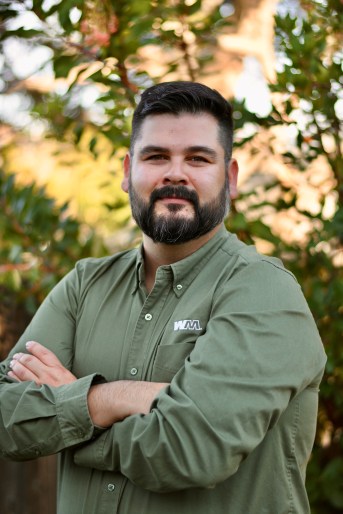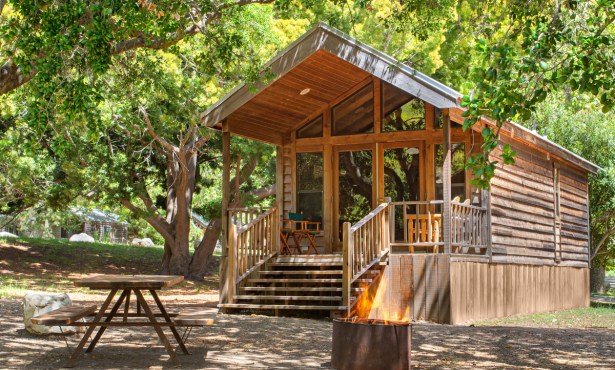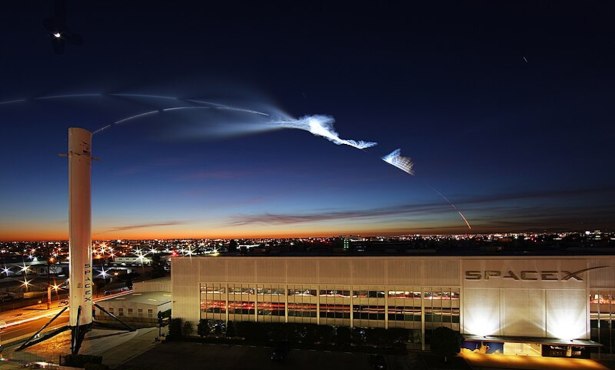Green-Bin Guru Hired to Help Northern Santa Barbara County Get Sorted
WM’s Luis Ramirez Will Oversee Public Education on Recycling and Food-Recovery Programs Throughout the Region
As recycling laws in California ramp up, waste management practices in Santa Barbara County continue to evolve. To help North County residents and businesses sort through the new rules, the waste management company serving the region has named a new public education liaison.

| Credit: Courtesy
Senate Bill 1383 — a state law implemented in January 2022 — aims to reduce the amount of organic waste in landfills by 75 percent by 2025, as well as recover 20 percent of edible food for donation. The law is still being implemented in parts of the county and will require more local businesses to participate in food recovery in 2024.
Since SB 1383 went into effect, residents and businesses in Santa Maria and Lompoc have felt the transition to new waste management practices more so than other areas in the county. Parts of South County, as well as Santa Ynez, are serviced by the ReSource Center facility at the Tajiguas landfill, which sorts commercial and residential waste into recyclables, trash, and organic waste. But in North County, folks are largely left to sort out the sorting themselves.
Enter waste management company WM, which recently hired Santa Barbara County native Luis Ramirez to oversee public education on recycling and food-recovery programs throughout North County.
“WM has prioritized generating new sustainability efforts with better recyclable separation practices, reducing greenhouse gasses through creating an organic waste program, and partnering with local organizations and partners involved in Food Recovery and Resource Recovery,” WM stated in a recent press release. “Ramirez will be the public liaison in these transitions and will educate the community on the new policies.”
In an interview with the Independent, Ramirez said his biggest outreach initiative right now is working with multifamily complexes, apartments, and mobile home parks, which house multiple families with shared trash containers.
“That has its inherent challenges for recycling,” Ramirez said. “But a lot of those, we’re still working on getting them compliant.”
He explained that he’s been coordinating education efforts with those tenants, and WM is working to provide multifamily residents, and even those who are not technically required to separate organics, with organics carts — those green bins used for disposing of food and garden scraps.
“We’re trying to pull that food waste out and essentially turn it into compost, which can be reused for agriculture,” Ramirez said. “The cool thing is, especially in our area here in Santa Maria and the Lompoc Valley, is that other things that we can pull out, other than just food waste, are things like soiled papers. So there’s quite a bit of goods that we can put into those organics bins.”
Disposing of organic waste into landfills — which makes up about half of the material in California’s landfills — instead of composting or recovering it, increases methane gas emissions, which Ramirez called a “super pollutant” that is four times more potent than carbon dioxide.
“When I meet with businesses, especially food businesses, I like to educate them and collaborate with the county, and a big piece of it is food donation,” Ramirez said. “We’re trying to push 20 percent of that edible food and redirect it. Because, ultimately, if we can take stale bread or anything out of those restaurants before it makes it into the trash, or into the organics bin, we’re able to give it to people who are food insecure.”
Sign up for Indy Today to receive fresh news from Independent.com, in your inbox, every morning.
Ramirez said he is working hand in hand with the county for these programs; each business or organization will be assisted in figuring out the right service fit for them for recycling and donation. With residents, Ramirez is helping participants transition and comply with a three-cart service — sorting waste into trash, recyclables, and organics — especially in Santa Maria and the Lompoc Valley.
“As far as the implementation part of it, it’s a collaborative effort with county staff. We work together and try to get everybody compliant with what applies to them,” Ramirez said. “Depending on your location, and trash output, there’s certain things that apply to you, which is where my part comes in. One of the big things I do is go door to door; I feel like I can accomplish quite a bit by meeting with these businesses and multifamily complexes, coming up with ideas on where to put carts.”
In other recycling news, California recently passed SB 54, which aims to greatly reduce plastic pollution and increase reusables by 2032. Plastic can take decades to break down, so SB 54 requires that, by 2032, 100 percent of packaging must be recyclable or compostable, 65 percent of all single-use plastic packaging must actually be recycled, and plastic packaging must be reduced by at least 25 percent.
According to Leslie Wells, the Deputy Director for the county Resource Recovery & Waste Management Division, Santa Barbara recycles plastics #1 and #2 and large, rigid #5, but there are currently no markets for plastics #3-4 and #6-7, which are items such as plastic bags and clamshells used for food packaging and to-go containers. She said that the issue of recycling plastics comes up so often because, worldwide, waste management infrastructure is expensive.
“The price we pay to have our waste collected, as well as operate a modern landfill and processing facility that can sort materials including plastics, requires a significant investment that is out of reach for most developing economies in the world,” Wells said in an email to the Independent. “In the U.S., we have the ability and responsibility to mitigate the environmental impact of our waste and that includes recycling.”
To request technical assistance, service changes, or for help developing new diversion programs before or after containers are delivered, people can contact WM representatives at (805) 922-2121 or via email at LRamire6@wm.com. Residents may also ask for a free waste assessment and a visit from their local Recycling Coach.
Individuals can learn more about how to reduce waste from the local Santa Barbara County Resource Recovery & Waste Management Division at https://lessismore.org/.
Support the Santa Barbara Independent through a long-term or a single contribution.




You must be logged in to post a comment.